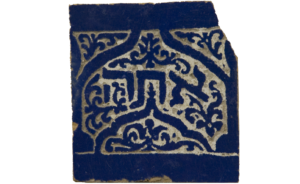| Source (Hebrew) | Translation (English) |
|---|---|
אַתָּה ה׳, מָגֵן בַּעֲדִי תֹּאחַז יְמִינְךָ לְסַעֲדִי. | |
אֶשְׁאַל, אֱלֹהַי, מִמְּךָ דְרוֹר לָצֵאת לְחׇפְשִׁי מֵעֳנִי וּבוֹר, תָּשִׂים לְפָנַי מַחֲשָׁךְ לְאוֹר וּבְדַרְכְּךָ, יָהּ, תָּכִין צַעֲדִי, |
Of you—my God—I ask for the liberty to go free from impoverishment and baseness. Replace the darkness before me with light,[3] Cf. Isaiah 42:16. and prep my step along Your way, Yah. |
נָא חִישׁ וְשַׁנֵּס עֹז קִנְאָתְךָ, וּלְבַשׁ כְּשִׁרְיוֹן הוֹד צִדְקָתְךָ כּֽוֹבַע יְשׁוּעָה שִׂים בְּרֹאשְׁךָ, וּגְאַל עֲדָתִי מִיַּד שׁוֹדְדִי! |
Please—hasten, and bind the glory of Your zealousness, and wear the glory of Your righteousness like a tune-ic.[4] Shawat’s Hebrew כְּשִׁרְיוֹן (keshiryon) does not match up with Isaiah’s original כְּשִׁרְיָן (keshiryan) in Isaiah 59:17. The exact meaning of each word is elusive, but Isaiah’s term usually refers to some sort of garb, but Shawat’s might be a bit more musical in sound, even if ultimately God is being asked to wear something. Place the hood of redemption[5] Isaiah 59:17. upon Your head, and redeem my congregation from the hand of the force that pillages me. |
יָהּ, תֵּן מְהֵרָה יָד בְּאוֹיְבִי, הוֹצֵא הֲמוֹנַי מִכְּלוּא שְׁבִי! יַעְלוּ לְאֶֽרֶץ נַחֲלַת צְבִי, אָז יִרְבְּצוּ שָׁם נָמֵר עִם גְּדִי. | |
פָּנִים בְּפָנִים יִרְאוּ הוֹדְךָ חוֹפֵף עֲלֵיהֶם תּוֹךְ מְעוֹנְךָ, תַּשְׁקֵם כְּמֵאָז נַֽחַל עֶדְנְךָ, יִרְאֶה וְיֵבוֹשׁ צָר וּבוֹגְדִי. |
Let them see Your glory face-to-face[9] Deuteronomy 5:4. ; shield them[10] Deuteronomy 33:12. amidst Your abode. As had been back then, let them drink from the stream of Your Edenism[11] Another translation of עֶדְנְךָ (ednekha, “Your Eden[ism]”) could be “Your delight” or “Your joy.” Compare with Psalms 36:9. ; let the enemy[12] According to one manuscript, “the enemy” should be “my enemy.” and my deceiver behold and be ashamed. |
רָצוֹן כְּצִנָּה חִישׁ לְעַטְּרִי, שָׁלוֹם יַעֲשֶׂה לִי גַם לְעוֹזְרִי, יִפְרַח כְּבוֹדִי יַעֲשֶׂה פְרִי, אָז יִהְיֶה צַר רָץ לְכַבְּדִי. |
Let the Will[13] The word “Will” (רָצוֹן, ratson) is a synonym in Kabbalah (קַבָּלָה, Jewish mysticism) for God’s most ineffable and least tangible aspect: Keter (כֶּֽתֶר, “Crown”). be a shield to coronate me,[14] Cf. Psalm 5:13. granting peace to me as well as to my helper.[15] I Chronicles 12:19. Let my substance blossom and bear fruit; then will the travail traverse to revere me. |
גִּילָה אֲעוֹרֵר יוֹם, לְבֵיתְךָ תָּשִׁיב שְׁבוּת אֶת־עַם עֲדָתְךָ לַחֲזוֹת בְּנֹֽעַם זִיו כְּבוֹדְךָ, שָׁם יְהוֹדְךָ צוּר מְעוֹדְדִי, | |
יָחִיד, חֲרוֹנְךָ עַל אֱדֹם שְׁפֹךְ, וַעְרָב כְּשַׁבְּלוּל תֶּֽמֶס יַהֲלֹךְ, וּלְיוֹדְעֶֽיךָ—חַסְדְּךָ מְשֹׁךְ, יֵלְכוּ גְאוּלִים לְבֵית מוֹעֲדִי! |
Singular One, pour out Your wrath over Edom, and emulsify, (un)like a snail melting and beyond.[18] Psalms 58:9. Clasp onto Your lovingkindness for the sake of those who know You; let them go, redeemed, towards the house of my meeting. |
חָזָק, עֲנֵנִי מִזְּבוּלְךָ שִׁירִי תְּמוּר שַׁי קַח בְּחַסְדְּךָ חַדֵּשׁ בְּקִרְבִּי רֽוּחַ קׇדְשְׁךָ תִּשְׁכֹּן סְבִיבִי, צוּר מְלַמְּדִי! |
Note the signature acrostic in this piyyut, “Ani Fradji Ḥazak.” The kabbalist Fradji Shawat (the author of this poem) was born in Fes (פאס), Morocco, and later moved to Béja (באג׳ה), Tunisia. Béja’s locals evidently did not at first care much for him but later grew fond of him (Hazan, p. 14). Leopold Zunz dated Shawat to the mid-16th century (Literaturgeschichte der synagogalen Poeseie [Berlin, 1865], p. 550). Shawat lived into the start of the 17th century. Jews who later wrote Tunisian Judeo-Arabic folk-songs about him yearly visited Shawat’s grave in Testour, Tunisia him. Rabbi Shawat’s songs were forgotten for nearly half a millennium (Hazan, p. 14).
Translated and with commentary by Rabbi Jonah Rank in preparation for Passover 5779 (2019)—based on Ephraim Hazan, The Poems of Fradji Shawat: Critical Edition with Introduction and Commentary (Ben-Zvi Institute: Jerusalem, 1976) (Hebrew), pp. 78–79. | תרגם ופירש הר׳ יונה גילון לבית אסתר איטע והר׳ רפאל פרץ בהכנתו לחג פסח בשנת ה׳תשע״ט—ומבוסס בספרושל אפרים חזן (העורך), שירי פרג׳י שוואט (הוצאת מכון צבי של יד יצחק בן-צבי והאוניברסיטה העברית בירושלים: ירושלים, ה׳תשל״ו) (שירי גלות וגאולה ו׳) עמ׳ עח–עט.
This work was first published on 17 April 2019 at Rabbi Jonah Rank’s blog, here.
Source(s)
Click to access Attah-Adonai-Magen-Baadi-Jonah-Rank-trans.-2019.pdf
Notes
| 1 | Psalms 3:4. |
|---|---|
| 2 | Cf. Psalms 139:10. |
| 3 | Cf. Isaiah 42:16. |
| 4 | Shawat’s Hebrew כְּשִׁרְיוֹן (keshiryon) does not match up with Isaiah’s original כְּשִׁרְיָן (keshiryan) in Isaiah 59:17. The exact meaning of each word is elusive, but Isaiah’s term usually refers to some sort of garb, but Shawat’s might be a bit more musical in sound, even if ultimately God is being asked to wear something. |
| 5 | Isaiah 59:17. |
| 6 | Jeremiah 37:4. |
| 7 | Jeremiah 3:19. |
| 8 | Isaiah 11:6. |
| 9 | Deuteronomy 5:4. |
| 10 | Deuteronomy 33:12. |
| 11 | Another translation of עֶדְנְךָ (ednekha, “Your Eden[ism]”) could be “Your delight” or “Your joy.” Compare with Psalms 36:9. |
| 12 | According to one manuscript, “the enemy” should be “my enemy.” |
| 13 | The word “Will” (רָצוֹן, ratson) is a synonym in Kabbalah (קַבָּלָה, Jewish mysticism) for God’s most ineffable and least tangible aspect: Keter (כֶּֽתֶר, “Crown”). |
| 14 | Cf. Psalm 5:13. |
| 15 | I Chronicles 12:19. |
| 16 | Cf. Psalm 27:4. |
| 17 | Cf. Psalms 147:6. |
| 18 | Psalms 58:9. |
| 19 | Cf. Psalms 69:30–31. |
| 20 | Psalms 51:12. |
| 21 | Psalms 51:13. |
| 22 | Psalms 144:1. |

“אַתָּה ה׳, מָגֵן בַּעֲדִי | Attah Adonai Magen Ba’adi, a piyyut by R’ Fradji Shawat (late 16th c.)” is shared through the Open Siddur Project with a Creative Commons Attribution-ShareAlike 4.0 International copyleft license.







Leave a Reply